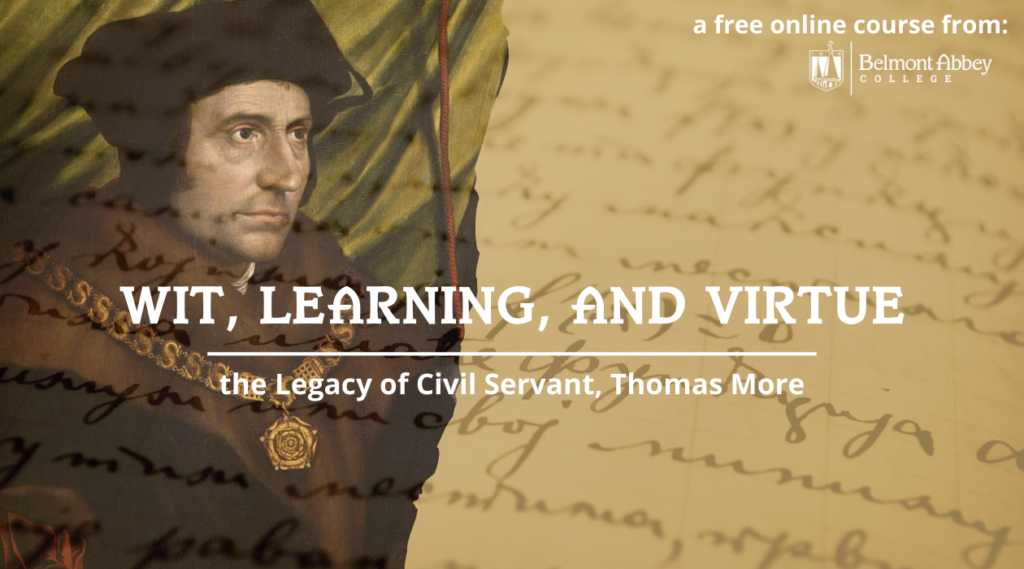
Wit, Learning, and Virtue: The Legacy of Civil Servant, Thomas More
A family man, teacher, lawyer, statesman, and saint, Thomas More has become a figure almost of myth to those who commemorate his courage and conviction in martyrdom.
Fifteen years before his death, a contemporary, Robert Whittington, famously characterized More as “a man of an angel’s wit and singular learning. He is a man of many excellent virtues; I know not his fellow. For where is the man (in whom is so many goodly virtues) of that gentleness, lowliness, and affability? And as time requires, a man of marvelous mirth and pastimes and sometime of steadfast gravity – a man for all seasons.”
Robert Bolt would later adopt “A Man for All Seasons” as the title of his 1960 dramatization of the events leading up to St. Thomas More’s death, and the play’s continuing resonance with modern audiences only emphasizes how apt an epithet its title really is. St. Thomas More certainly was “a man for all seasons,” in the way Whittington suggested: his humility and affability, his sense of humor, intelligence, and depth fitted him to engage with others across a range of circumstances. But More is also “a man for all seasons” in the sense that he remains a powerful model of integrity, justice, and faith in any age.
In this new, free online course from Belmont Abbey College, you’ll have the opportunity to join Judge Robert Conrad, Dr. Joe Wysocki, Dr. Ian Crowe, and Hillsdale College’s Dr. Shaun Rieley as they explore the life, death, and thought of St. Thomas More, the “man for all seasons.” Discover what this great saint still has to teach us, in our own particular place and time.
Get your free access to the video course today— just tell us where to email a link to the course by completing the form below!
